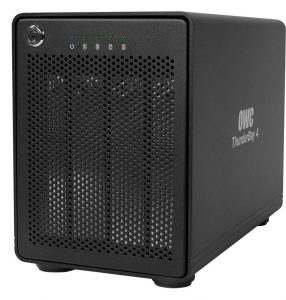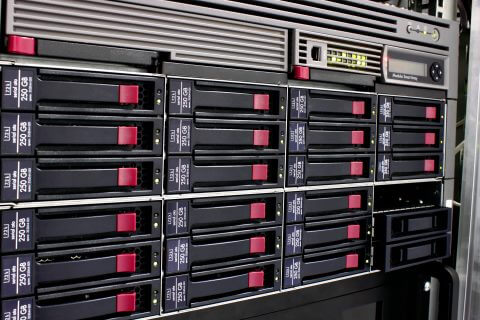RAID Data Recovery Services from Datarecovery.com
RAID Recovery with Guaranteed Results.
 Recover RAID data without the downtime.
Recover RAID data without the downtime.
When you lose access to mission-critical data, you need experts that understand the intricacies of RAID recovery — and who have experience with your system’s characteristics.
Datarecovery.com is the world leader in RAID data recovery. With full-service laboratories in multiple states and in Canada, we provide fast turnaround times, flexible service options, and a no data, no charge guarantee.
With options including 24/7 services, remote data recovery, and on-site recovery, we provide the expert resources you need to recover from data loss disasters.
Speak directly with a RAID engineer by calling 1.800.237.4200. You can also start your case by clicking the button below.
Expert RAID Data Recovery Services
RAID recovery is often a much more intensive and time-consuming process than hard drive data recovery: For many businesses, the stakes are much higher. If you need files from a web server or other mission-critical device, you cannot afford to trust your data to an inexperienced engineering team.
We offer RAID data recovery for all types of devices, and our team has years of experience with every RAID level and manufacturer. This experience plays an important role in our success; no two RAID cases are identical, and differences in hardware and software need to be carefully addressed.
Our RAID services are backed with a no data, no charge policy. Because of the large number of factors that can influence each case, the exact recovery process will vary. Datarecovery.com engineers have access to ISO 5 cleanroom technology, which allows for the safe repair of individual RAID members. We also have stations at every laboratory that allow various RAID array levels to be reproduced without the original hardware — regardless of controller card type, file system, and other factors.
In most cases, we will only need access to your RAID hard drives, not the controller card or other hardware. If your hard disk drives cannot leave your location, Datarecovery.com can dispatch engineers and equipment to perform an onsite recovery. We can also access your equipment remotely to perform some data recovery tasks, provided that your hardware is fully functional. Contact our staff at 1.800.237.4200 for more information.
 Datarecovery.com offers:
Datarecovery.com offers:
- A Single Point Of Contact. Know who you’ll be speaking to every time you pick up the phone. A dedicated customer service contact will understand the details of your case and provide fast answers to your questions.
- The Fastest RAID Data Recovery Turnaround Times Available. Multiple highly-trained engineers working on each case and ongoing training keeps our RAID teams faster than the competition. When turnaround time is a critical factor, our emergency service puts a team of qualified engineers on your case for 24 hours a day until the recovery is complete.
- Anytime Updates™. Stay informed as your case progresses. We offer a 24/7 online instant update system which allows you to see engineering notes as they’re updated. You can also get more information at any time by calling your dedicated representative.
- Unequaled Experience. Since our inception in 1997, Datarecovery.com has recovered data from all types, configurations, and levels of RAID. We have worked with every major controller card, every brand of hard drive, and thousands of different recovery scenarios.
- No Hidden Costs. We provide industry-leading success rates and access to advanced techniques that restore data ASAP — without misleading price quotes or “per-attempt” fees.
- Real Laboratories at Every Location. Datarecovery.com does not operate “shipping offices,” and all locations are capable of performing RAID construction and recovery.
Supported RAID Levels and Array Types
Datarecovery.com supports every type of RAID array. Our RAID data recovery services have been used by hundreds of organizations, and we are one of the only companies in the world with multiple cleanroom-equipped laboratories.
Some supported RAID levels include:
- RAID 1 and RAID 10
- RAID 0 and RAID 01
- RAID 1E
- RAID 3
- RAID 4
- RAID 5, RAID 5E, and RAID 5EE
- RAID 6
- RAID 50, 51, 60 and All Nested RAID
- BeyondRAID (Drobo)
- RAID ADG and More
- JBOD and Non-RAID Configurations
- Synology Hybrid RAID (SHR)
- Virtual RAID
We also support all RAID controller cards and hardware. Datarecovery.com offers recovery for all makes and models including:
- Microchip Technology / Adaptec® RAID
- Areca Technology
- ASUS RAID
- LG
- Promise Technology
- Supermicro
- Dell (Includes PowerEdge Series)
- Intel
- IBM (Includes xSeries, Power Series, ServeRAID, etc.)
- ATTO Technology
- HP (Includes ProLiant Series)
- QNAP
- LSI and More
If your RAID fails or if you cannot read important files, we recommend contacting our specialists for a free consultation. Please avoid running the array after a failure or taking any steps that could cause corruption, overwrites, parity loss, or media damage.
For more information or to start your RAID data recovery, call Datarecovery.com now at 1.800.237.4200 or click below to set up a case.
Start a case
RAID Data Loss: Common Scenarios
Our laboratories can address all types of RAID failures, including:
- Raid Controller Failure (Hardware Failure) – Hardware issues such as failed controllers (RAID cards) can disrupt continuity, leading to complete array loss.
- Power Issues – Intermittent power outages, power surges, and similar events can cause file corruption, particularly on systems with limited redundancy.
- Accidental Deletion – Human error is a common source of data loss across all systems, not just RAIDs. In the vast majority of cases, data is completely recoverable provided that the RAID is treated within several days of deletion (dependent on filesystem and other factors). RAIDs that undergo a low-level format are generally non-recoverable.
- Failures Past Redundancy – A single RAID disk failure will not cause data loss for redundant systems, but additional disk failures can cause RAID degradation. Unfortunately, the act of rebuilding an array often prompts a secondary or tertiary drive failure.
- Corrupted RAID 5 – Often, a system doesn’t show immediate signs of hardware issues, but files may appear corrupt due to write errors, bad sectors, partition table damage, or file system corruption.
- Natural Disaster – Fires, floods, hurricanes, and other disasters can damage controllers and RAID disks. See images of fire-damaged RAID arrays successfully treated in Datarecovery.com laboratories.
- Failed RAID Rebuild – Rebuilding RAID volumes puts additional strain on the other hard drives (or SSDs) in the system. RAID reconstruction may also fail due to power outages that occur during the rebuild process, or when the wrong disks are replaced in the RAID order.
RAID Data Recovery FAQ
What about RAID recovery software?
Datarecovery.com does not recommend RAID data recovery software in mission-critical scenarios. All engineers use software when treating file corruption, accidental deletion, and other logical issues. However, software can permanently overwrite data when used incorrectly.
RAID logical issues can have a wide range of causes, and RAID members should be cloned prior to recovery attempts. Software should never be used on a RAID array that shows signs of physical damage or controller failure.
Despite the claims of some vendors, no software can correct hardware issues. Trial versions of recovery apps may provide lists of “recoverable” files, but that does not indicate that the files are actually retrievable in a usable condition — only that the software is able to read the corresponding filenames.
What should I tell engineers when setting up a RAID data recovery case?
Collect as much of the following information as you can:
- RAID level, storage capacity, and make and model (where applicable).
- Other RAID parameters, including block size and stripe size.
- A detailed description of the events that preceded data loss.
- A detailed description of any symptoms that occurred when the system failed (particularly for hardware RAID issues).
- Any error messages (including RAID status notifications that indicated RAID degradation or controller issues).
- A file list with the target files & folders for recovery. Datarecovery.com provides a no data, no charge guarantee: If targeted files are not recoverable, you don’t pay for the attempt. Partial recoveries are discounted.
What should I know when shipping a RAID for data recovery?
If you ship your array to a Datarecovery.com laboratory, you will usually not need to include the controller card. Mark the individual drives clearly to show their order in the array.
If you’d rather not ship your array, you may have it couriered or drop it off in person. Datarecovery.com is one of the only RAID services with multiple laboratories throughout the United States and Canada. All of our locations are fully staffed with certified RAID data recovery engineers and contain full-service laboratories.

